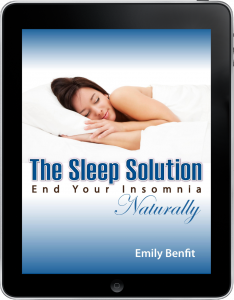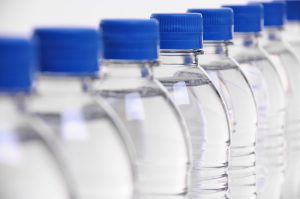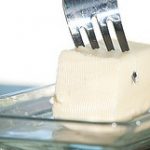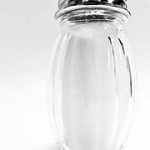“Don’t drink caffeine!”
“Don’t eat sugar!”
“Don’t eat too much at night!”
The typical advice for sleeping better is probably all stuff you’ve heard before. And it probably didn’t work. (Hence, probably why you’re reading this post, in hopes for something different. I know the feeling.)
I’ve come across a lot of information about sleep health in the last couple years, and I’ve found out that most of the remedies and tips that are supposed to make a difference in your sleep really don’t address the root cause of sleep disturbances and insomnia—glucose metabolism and hormonal regulation.
Once I figured that out, changing my sleeping patterns was pretty easy. I was able to recover from the insomnia I had experienced for years, and finally develop normal sleep-wake cycles again. And I’ve never felt healthier.
 The Sleep Solution
The Sleep Solution
I recently wrote a whole book about this stuff, after discovering the strategies that led me to recover my sleep. And I’ve already had more than one person tell me that this ebook “literally CHANGED [their] LIFE!” (and yeah, that made me cry.) I’m so completely thrilled that so many people have been able to apply the same principles I learned to finally get over insomnia and have healthy sleep cycles again.
The Sleep Solution: End Your Insomnia Naturally normally sells for $29.95, but for ONE week, you can get it along with my other ebook, Real Food for Real Life: How to Eat Healthy Without Going Completely Crazy, PLUS 45 other ebooks, plus tons of other stuff, for only $39 bucks.
The Fall into Health Sale includes The Sleep Solution, PLUS…
- 47 e-books – $955 value
- 15 exclusive podcast seminars – $45 value
- 3 online video classes – $238 value
- 2 meal plan packages – $223 value
- 2 magazine subscriptions – $63 value
- 21 coupons (for your favorite online healthy living retailers) – Over $500 value
You get over $2,000 worth of incredible real food and healthy living resources for only $39—that’s 98% off!
Why the ridiculous discount? What’s the catch? Just one—the sale is only available for ONE week only. Really, that’s it! Click HERE to learn more.
10 Easy Tips for Getting Better Sleep
Alright, onto 10 of my top tips for sleep. These are not difficult to implement whatsoever, and I think you’ll be shocked at not only how simple they are, but how quickly they can start working for you.
Rise and SHINE!
Yep, just like the old saying goes! The “shine” part of the phrase—exposing yourself to natural daytime light—is actually very important in establishing healthy circadian rhythms—that’s the cycle of specific hormones, enzymes, and biological chemicals to keep your body’s systems running smoothly. Circadian rhythm is critical in maintaining healthy sleep-wake cycles. And one of the easiest ways to influence circadian rhythms is through light exposure.
We’re not designed to wake up in the morning and then go sit in a dark, gloomy room indoors, getting zero natural UV exposure all day. Though typical of our modern lifestyle, that’s just not how things are supposed to work when it comes to your body’s biology and sleeping patterns. Just as sleeping in a dark environment is important for sleep quality, getting the exact opposite during your active hours is essential—you need to step out into the light!
Literally. Getting this ultra-beneficial sunlight exposure is especially helpful if it’s started early in the day—it helps your body transition from sleep to the waking part of your daily cycle, jumpstarts energy production, and gets the right anti-stress hormones pumping to start your day off right. When the biological line between sleep (dark) and awake (light) is more clear, each side of the cycle functions better. Light signals the right biological processes and hormones to get pumping during the day to keep you energized—just long enough until you’re ready for sleep, when the right ones to settle you down at night can begin to take over.
I recommend getting in the habit of taking a walk outside as early in the day as you can, and aiming for a total minimum of 20 minutes of outdoor daylight exposure each day.
If you absolutely can’t go outside to get a little sunlight during the day or in the morning, at least sit by a brightly-lit window while you eat your breakfast, and if you’re stuck in a fluorescently-lit cubicle all day, try your best to take your breaks outdoors or near natural light.
Eat Breakfast
“Wakey, wakey—eggs and bakey!”
(And hopefully some oats, or toast, or fruits, or milk, or muffin, or some other kind of carbs—you need more than just protein and fat!)
It’s critically important to eat relatively soon after waking up in the morning. This is because your body already will be peaking in the stress hormone cortisol around that time, and has had adrenaline pumping around in there since the wee hours of the morning. Eating a good breakfast right when you wake up shuts these stress hormones down, especially if you make sure to include a healthy amount of carbohydrate and other nutrients, such as salt, which are key to deactivating the body’s stress response. When you are able to better manage levels of stress hormones during the day, this helps to maintain healthy circadian rhythms (daily hormonal cycles) throughout the full 24-hour-cycle, allowing you to maintain healthy hormonal balance at night. Over-activated stress hormones at night are a big culprit of insomnia and sleep disturbance.
If you’re truly not hungry when you wake up, at least get in a few bites of something which provides fat, protein, carbohydrate, and salt. Then, when you feel ready for it, be sure to get in a substantial and balanced meal.
Get some exercise, but not after dinner
People who exercise have been shown to get more restful sleep than those who do not, but you don’t have to go spend hours at the gym to get improved sleep. Actually, moderate to intense activity like that too early or too late in the day could worsen your sleep quality. You want to keep your morning activity light and leisurely, so it’s just enough to get your body in “wakeup” mode, but not so much that it interferes with your hormonal rhythms.
The best time to do real, work-out-type exercise is in the middle of the day, from about 10am-3pm. Do not do strenuous activity late in the day— this is a huge culprit of insomnia! Strenuous exercise depletes glycogen stores and if it’s too late in the day to replace them, blood sugar will drop at night, disrupting your sleep. It’s much better to keep the majority of your physical activity done in the early-to middle parts of the day, and avoid any exercise at night.
 Ditch the water bottle
Ditch the water bottle
Everyone knows that you don’t want to load up on liquids right before bed, because that’ll only cause you to wake up in a couple hours having to pee. But being more conscious of your fluid intake throughout the day can actually help improve your sleep at night, too.
You know how they say that your body is 60% (or 80% or 90%, or whatever “they” think it is these days) water? Well, yes—your body does contain quite a lot of water, but this water needs to be very carefully balanced with nutrients your body needs to keep things operating as they should—things like electrolytes and glucose. A more accurate way to think of your bodily fluids is to think of it as your body’s “soup”—and soup isn’t good if it’s too diluted, or too concentrated, with water. Any time you are eating foods or consuming liquids, you are either concentrating or diluting your extracellular fluid soup.
Electrolytes, sodium in particular, and glucose, are like your cells’ “batteries”—without them, cells can’t produce adequate energy. We know that there is a proper concentration when it comes to these things. When you get an IV of fluids at the hospital, they aren’t pumping you full of straight water—you could die if they did that! In that IV bag is an isotonic solution with precisely 9 grams of sodium per liter of water. So if you’re drowning out your extracellular fluids in water all day long with a Nalgene attached to your hip, you could be hurting your cells’ ability to use fuel (glucose) and produce energy (metabolism). And since glucose metabolism is so central to healthy sleep patterns, this is a pretty big deal.
What’s the best solution then, to staying hydrated? Drink when you’re thirsty. The end. No seriously, that’s all you have to do. Avoid drinking for any reasons other than thirst—like because you think you should be drinking 8 glasses of water a day, or because you’re tired and guzzling down a Venti Americano (with 20 ounces of water that you probably weren’t thirsty for), or because it’s your habit. Try to get out of that habit. Drinking when you’re thirsty during the day will help maintain proper glucose metabolism, body temperature, and overall health—including sleep health.
Go easy on the meat at dinner time
Did you know that eating a big, fat steak for dinner could keep you up at night?
The reason for this is that muscle meats are actually fairly inflammatory foods. That’s because muscle meats like poultry, beef, and pork are too high in certain inflammatory amino acids. These are converted into stress hormones which can disrupt your sleep.
What’s the solution? Limit muscle meats at dinner time (have a smaller portion, eating more of your meat earlier in the day), and make sure to have a serving of gelatin, which contains plenty of anti-inflammatory amino acids that counter the effects of the inflammatory ones present in meat. Bone broth or gravy, or even jello for dessert will do the trick!
Eat dessert
Speaking of dessert—don’t skip it!
The biggest reason is that desserts tend to be filled with nutrients which are beneficial to sleep—starchy carbs, saturated fats, and sugars. Yes, I said the S-word.
Sugar not only provides glucose—the fuel your cells run on—it reduces cortisol and adrenaline, supports thyroid function, allows the liver to convert T4 into active T3 thyroid hormone, promotes higher body temperature and supports a high metabolic rate.
It’s no joke—your body does need sugar, whether your low-carb diet guru likes it or not. Sugar isn’t the devil, it’s just a carbohydrate. Without adequate carbs, your body will be unequipped to maintain normal blood glucose levels during the day and night, which can cause sleep disturbance. If you top yourself off with a few more carbs before bedtime, you’ll be able to prevent a stressful drop in blood sugar that can wake you up at night.
What I’m getting at here, is that a simple dessert after dinner, with natural sugars and/or easy-to-digest starches which break down into sugars (think, white flour—*gasp!*), combined with a balance of saturated fats, and protein—could be just the ticket you need to a good night’s sleep. Balanced meals and snacks = balanced blood sugar. And that equals balanced hormones, and better sleep.
 Take a bath
Take a bath
Who says a bedtime bath is just for kids? Taking a nice, hot bath before bed is not only relaxing and de-stressing, it has specific sleep-improving benefits if you make sure to include certain ingredients in your bath—epsom salts, and baking soda.
Epsom salt soaks are an old-school remedy for muscle soreness, but the beneficial effects of an epsom salt bath go beyond muscle relaxation. Epsom salt is magnesium sulphate, and the magnesium is a critical mineral your body needs for many things, such as moving calcium out of the muscles, and back into the bloodstream where it can be mobilized elsewhere. (That’s how it works as a muscle relaxant.) Magnesium is also a critical nutrient to your body’s glucose metabolism—it helps to regulate blood sugar by assisting cells in producing energy from glucose.
And baking soda supplements the body with extra CO2—one of the most important chemicals your body makes, that also plays a critical role in sleep cycles. Your sleep cycles are designed to maintain CO2 levels during the night. In REM sleep, breathing is shallow and inhibited, and CO2 levels rise. The naturally-restful deep sleep stages allow for a greater production of CO2, which allows for cellular repairs to take place as stem cells multiply and mitochondrial energy is supported with lots of that good CO2.
You can check out my Ultimate Sleepytime Bath Recipe here to learn more about using a bedtime bath as a natural sleep aid.
Turn off your wifi and phone
Research has shown that people exposed to cell phone radiation in particular take longer to fall asleep and they spend less time in deep sleep. You definitely don’t want to risk that. So, going after the two biggest EMF offenders in your home—cell phones and wireless internet routers, can go a long way in improving sleep quality.
While it would probably be ideal to do away with WiFi in the home altogether, I understand that would be a huge inconvenience for most people, and you may not be willing to go that route. I know I’m not. So instead, I suggest simply unplugging or turning off your wireless router before you go to bed. It’s a simple step that can negate a good amount of sleep-disruptive EMF radiation in your home and sleeping space.
Similarly, I know almost all of us aren’t willing to give up our phones. But, it is easy to negate the EMF radiation from your phone at least while you sleep. If turning your phone off at night isn’t a good option for you, just turn on your phone’s “airplane” setting when you go to bed, so that there won’t be any outgoing signals (to reach cell phone towers and data connectivity) emitted from the phone. With most phones, you should still be able to use the alarm clock feature even while airplane mode is turned on.
 Listen to a podcast, instead of falling asleep to TV
Listen to a podcast, instead of falling asleep to TV
You’re supposed to avoid bright lights at night, right? So your body can make more melatonin—you know, the “sleepy hormone” that you need to sleep! Right?
Well, yes and no.
We want to avoid excessive blue light, especially at night, not because it impairs melatonin, but because it acts as a physiological stressor in and of itself. Excessive blue light damages mitochondrial respiratory enzymes which diminish CO2, and suppresses energy production, or metabolism. Bright blue lights also stimulate excitatory cells and cortisol, so it’s disruptive to your sleep cycles to get a bunch of blue light late at night.
So, instead of staring at a brightly-lit blue TV screen in bed, I recommend listening to your nighttime entertainment. Podcasts, audio books, even self-hypnosis or guided meditation tracks are much more ideal for setting yourself up for a good night’s sleep.
Make ‘Sleepy Dust’ to keep on your nightstand
Since a drop in blood sugar is causing stress hormones to spiral out of control and wake you up in the night, what’s the best solution? Sugar and salt, of course! Believe it or not, these are potent anti-stress nutrients which are highly beneficial to sleep health.
A small amount of my special “Sleepy Dust” sugar & salt mixture will help put you right back to sleep if you find yourself awake at 3am tossing and turning. Check out the full instructions, and more information about why this works, in this post.
Want more tips?
 If you want to read more about how to solve your sleep issues, you could grab a copy of my latest ebook, The Sleep Solution, which has already helped hundreds of sleep-sufferers finally get the rest they need, for $29.95.
If you want to read more about how to solve your sleep issues, you could grab a copy of my latest ebook, The Sleep Solution, which has already helped hundreds of sleep-sufferers finally get the rest they need, for $29.95.
OR, you could spend nine dollars more and get 46 more ebooks, 3 online classes, 15 audio seminars, 2 meal plan packages, 2 magazines, and hundreds of dollars in coupons.
You know, take your pick.
The Fall into Health Autumn Sale, with $2,000 worth of healthy living resources for 98% off, is only available for one week, so don’t miss out!
Click HERE to get your hands on this crazy deal while you still can.
Hurry! Sale ends November 7th.









Leave a Reply